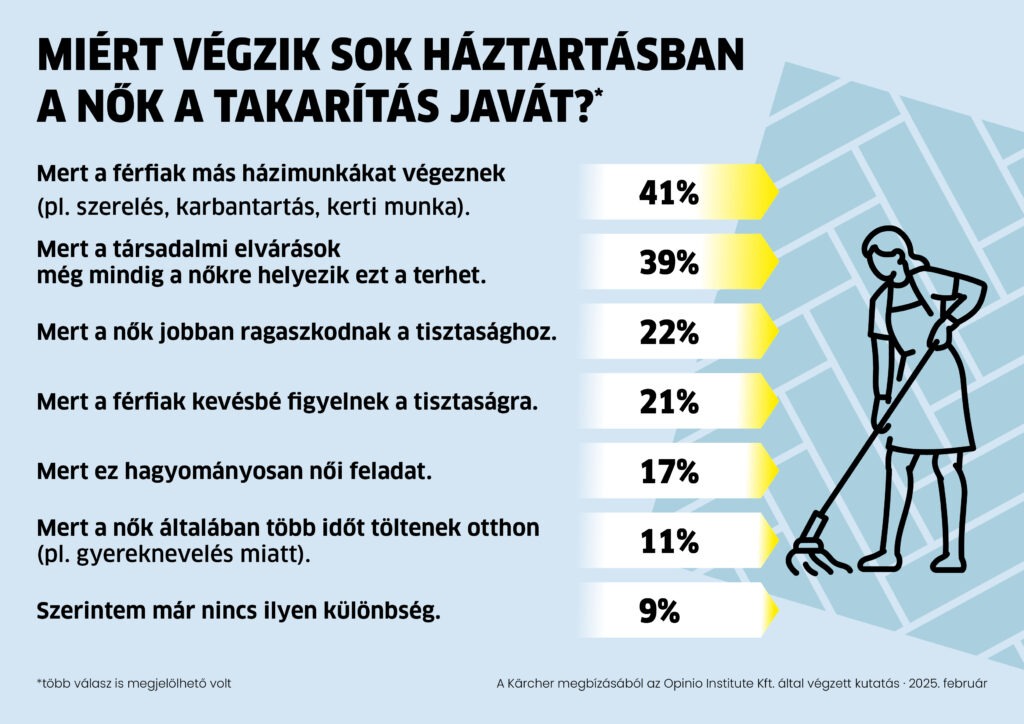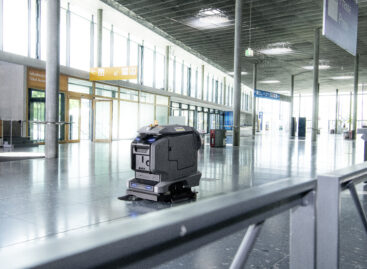Cleaning will no longer be a women’s job in 2025, but a shared responsibility
Is cleaning still a woman’s job today? Is this really what society expects? Cleaning technology expert Kärcher conducted research on the occasion of Women’s Day to find out who will be responsible for housework in 2025, and who likes to do what around the house. It turned out that although most people consider it a shared responsibility to keep the house clean, women are more likely to view cleaning as their own task. In fact, one of the most interesting elements of the research is that women are much more likely to feel that social pressure is putting more housework on them – men are less likely to place a burden on women in this area.
Shared responsibility
Today, there are many outdoor and indoor tools and household appliances that help with cleaning, so it may be easier to choose a favorite housework or activity around the house. Kärcher knows everything about cleaning, proper cleaning and the effective tools needed for this, but in its current research it was curious to know how the Hungarian adult population views housework. According to the majority of the participants in the research (59%), cleaning is a shared responsibility, so it cannot be defined as being more the job of women or men. According to a third of the respondents, it is more the responsibility of women, but it is interesting that this expectation does not necessarily come from men, as women named cleaning as their own job at a rate of about 10 percent higher.
Although we would think that this is an even stronger trend in the case of older generations, in fact there is a minimal difference in terms of different age groups: with advancing age, cleaning is only a few percent more often called a woman’s job. The traditional role-sharing view is most prevalent among those living in rural areas, where a much higher proportion called cleaning a woman’s job compared to those living in the capital.
How often do we clean?
More than half of the respondents clean their homes several times a week, and there are significantly more daily cleaners among women (27%) than among men (7%). It is interesting to note that in households with a garden, men are more active in cleaning tasks around the house than women. According to the results of the research, 2 percent of Hungarians never clean.
Favorite housework
The Kärcher study revealed that a third of the respondents do not have a favorite housework. Some people really enjoy a task if they have the right tool to help them with it, and the result will be even more spectacular. Of those who chose a favorite activity, women mostly voted for washing and dishwashing, while men like to mow grass and hedges or clean with a high-pressure washer. As people get older, they tend to work a little more in the garden than in their home.
Related news
(HU) A Kärcher már ma elhozza a jövő tisztítástechnológiáját
🎧 Hallgasd a cikket: Lejátszás Szünet Folytatás Leállítás Nyelv: Auto…
Read more >Related news
Nestlé to sell remaining ice-cream assets but commits to Froneri venture
🎧 Hallgasd a cikket: Lejátszás Szünet Folytatás Leállítás Nyelv: Auto…
Read more >









